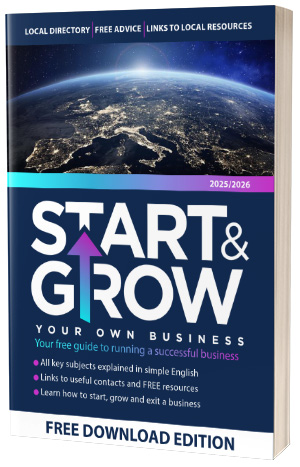

Having a good firm of accountants on your side will ensure that you have all the support that you need to help your business grow and flourish.
They can offer advice and help you comply with accounting and tax requirements.
If you are self employed or run a small enterprise in Warwickshire, it makes sense to use an Accountant or Bookkeeper who is keen to help small business and new business start ups rather than struggle with the task yourself.
Most people starting up in business in Leamington Spa and the surround areas do so because they have a good business proposition and the enterprise and commitment to see it through.
Most however are not experts in the legal and financial aspects of running a business and such matters can appear daunting. Fortunately you do not need to be an expert in these fields to succeed in business, but you do need the support of a team of trained experts.
We can help. Just bring us your business ideas and we will help you to make them a reality!
We will help you to:
* decide on the most suitable structure for your business - sole trader, partnership, limited liability partnership or limited company
* prepare a business plan, cashflow projections, budgets, and trading forecasts
* assess the finance requirements, advise on the best sources of finance and draw up the necessary proposals
* establish a good working relationship with your bank
* complete any registration procedures with Companies House and HMRC
* deal with company secretarial issues
* set up a recording system for your internal use and for complying with statutory requirements
* decide on what computer hardware to buy and help with the installation of accountancy software
* keep on top of bookkeeping, VAT, payroll and other accounting requirements and
help with all aspects of business compliance and administration
We are happy to promote anyone who provides a relevant product or service and is prepared to offer friendly support to local start-ups.
Our partners have been kind enough to help us and are keen to help you too.

Download the 2026 edition of our FREE guide
An interactive step-by-step guide which also includes all of the most important subjects covered with links to useful articles and relevant contacts.
This guide explains the key start-up subjects in simple English and points to where you can find help and support.
More Information and instant downloadOne of the first decisions you will need to make is which legal structure is likely to suit your new business and this will affect your accountancy obligations.
You can read a detailed article about your various options at: Sole Trader or Limited Company?
The information below primarily relates to self-employment but if you decide to trade as a limited company, you can read more here: Running a Limited Company.
You should tell HMRC as soon as you start self-employment, otherwise you may face a penalty. You are considered to have started self-employment when you have something to sell and either have a customer for your goods or services, or you are actively marketing your business.
You can let HMRC know about your self-employment by registering online for business taxes. A Self-Assessment Online account will automatically be set up at the same time. This allows you to send your Self-Assessment tax returns online. You will receive an Activation Code. You need to activate the service within 28 days. If you don’t, you will have to ask for a new Activation Code.
You can register online at https://www.gov.uk/log-in-register-hmrc-online-services/register
As a self-employed person, you pay a fixed amount of Class 2 National Insurance contributions (NIC). If your profits are above a certain limit, you may also have to pay Class 4 National Insurance contributions.
See Self-employed National Insurance rates for full details.
It is very important that you set up a record keeping system and keep all records and supporting documents. Records for the current tax year must be retained until 31 January 2022.
You must keep records of all money coming into and going out of your business. This includes all cash, cheques and credit card transactions.
Your records should be adequate to allow you to complete an accurate Self Assessment return. You will be expected to keep a full record of:
See Business records if you're self-employed for full details.
There are key dates that you need to be aware of during the financial year. These relate to reporting and payment of any monies due. A list of dates and full explanation can be found here.
You must register for VAT if:
You have 30 days from the date you meet any of these criteria to register.
Usually, VAT registration can be completed online and if you apply online, you will be enrolled automatically so that you can submit your VAT return online (there is no longer a paper version).
The current VAT threshold is £85,000; if your turnover is below the registration limit, you can choose whether to apply for voluntary registration. The standard rate of VAT currently is 20%.
See the official VAT website for full up to date details.

There is plenty of help for startups in Warwickshire but where can it be found?
Select classification:
